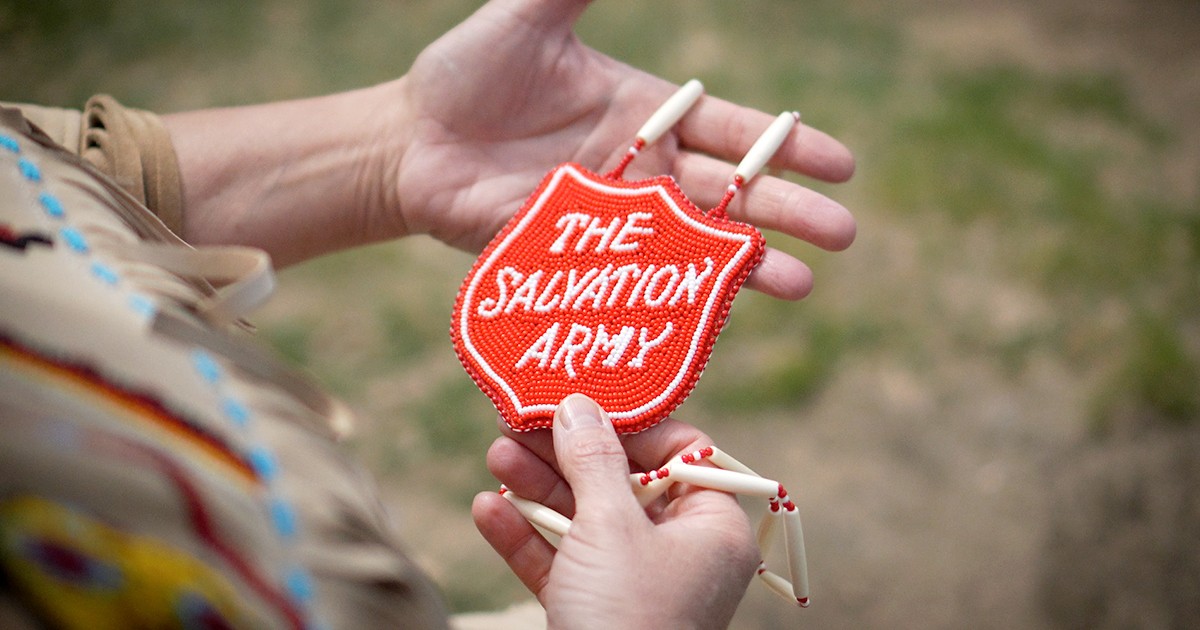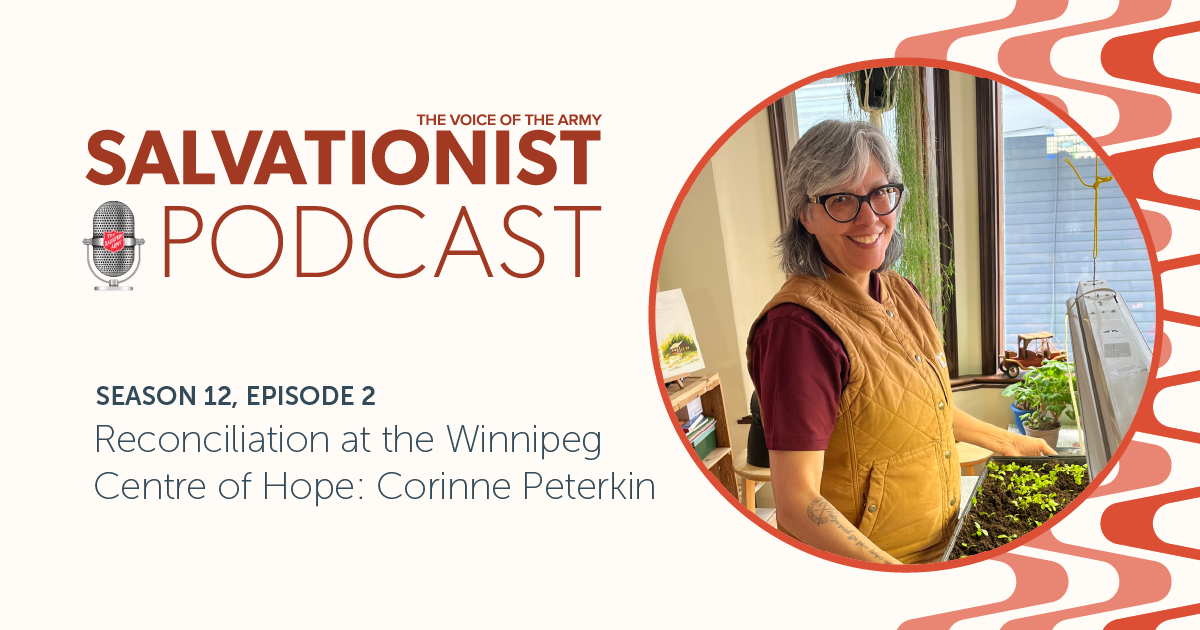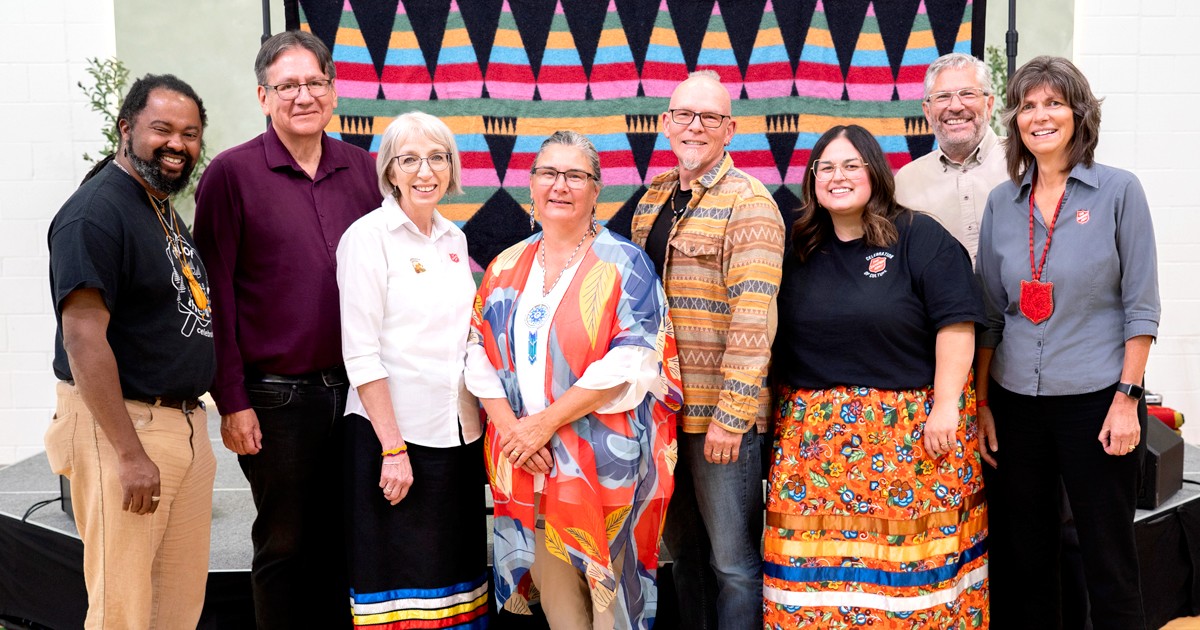The Truth and Reconciliation Commission (TRC) held its final hearings, and delivered its report to the public and to the federal government in Ottawa in June, marking the official end of its mandate.* These closing events were an opportunity to bring together survivors, families of survivors, church representatives, and non-Indigenous Canadians to pause and reflect on the difficult and revealing work undertaken by the TRC and to acknowledge the past wrongs while imagining a way forward.
"The Salvation Army operated no residential schools but our history of working with Indigenous people demands we pay attention to the 94 recommendations of the TRC and allow them to inform us for future ministry," says Major Fred Waters, territorial corps ministries secretary, who attended the closing events with Lt-Colonel Jim Champ, territorial secretary for communications, and Jessica McKeachie, public affairs director.
The closing events commenced with a walk for reconciliation where thousands of walkers led by the Commissioners of the TRC, Indigenous leaders, survivors and representatives of many faiths walked in solidarity for better relations between Indigenous and non-Indigenous Canadians.
Over the course of the following two days, survivors, their families and those affected by the Indian Residential Schools were encouraged to come together. The program included events such as sharing circles, panels discussions, education events for school groups and updates from local representatives from across Canada on the process of reconciliation.
"We have learned in disturbing detail that the treatment of Indigenous children in the residential schools was abusive, perpetuating the systemic removal of language and culture from Indigenous children," says Major Waters. "The TRC opened a conversation where those who survived and those who have been affected by the outcomes of this system have been able to tell their stories and journey towards healing."
On June 2, the TRC released a summary of its findings and recommendations. The report captured much of the pain suffered by Indigenous persons, but it also demonstrated hope for the future and helped outline a path toward greater reconciliation. Justice Murray Sinclair, chair of the TRC, read the findings, stating: "You don't have to believe that reconciliation will happen; you need to believe that reconciliation should happen. Our leaders must not fear this onus of reconciliation. The burden is not theirs to bear alone. Rather, reconciliation is a process that involves all parties of this new relationship."
Commissioner Marie Wilson similarly looked to the Canadian people, noting that, "we must demand that same bravery and trust from all Canadians. Not just government officials, not just elected leaders, but every person in Canada. We need reconciliation so that a broken country can become whole again."
"The closing events, while marking the end of one journey, clearly represent the continuation of a much longer, more complex and difficult journey for the country," says McKeachie.
"The Salvation Army joined other church leaders to hear the stories of survivors and to learn so that we can respect the culture, language and spirituality of Canada's First Peoples," concludes Major Waters.
*The Truth and Reconciliation Commission was founded in 2008 as part of the Indian Residential Schools Settlement Agreement. Its mandate is to inform all Canadians about what happened in Indian Residential Schools, and to help guide Aboriginal Peoples and Canadians toward reconciliation and renewed relationships.
"The Salvation Army operated no residential schools but our history of working with Indigenous people demands we pay attention to the 94 recommendations of the TRC and allow them to inform us for future ministry," says Major Fred Waters, territorial corps ministries secretary, who attended the closing events with Lt-Colonel Jim Champ, territorial secretary for communications, and Jessica McKeachie, public affairs director.
The closing events commenced with a walk for reconciliation where thousands of walkers led by the Commissioners of the TRC, Indigenous leaders, survivors and representatives of many faiths walked in solidarity for better relations between Indigenous and non-Indigenous Canadians.
Over the course of the following two days, survivors, their families and those affected by the Indian Residential Schools were encouraged to come together. The program included events such as sharing circles, panels discussions, education events for school groups and updates from local representatives from across Canada on the process of reconciliation.
"We have learned in disturbing detail that the treatment of Indigenous children in the residential schools was abusive, perpetuating the systemic removal of language and culture from Indigenous children," says Major Waters. "The TRC opened a conversation where those who survived and those who have been affected by the outcomes of this system have been able to tell their stories and journey towards healing."
On June 2, the TRC released a summary of its findings and recommendations. The report captured much of the pain suffered by Indigenous persons, but it also demonstrated hope for the future and helped outline a path toward greater reconciliation. Justice Murray Sinclair, chair of the TRC, read the findings, stating: "You don't have to believe that reconciliation will happen; you need to believe that reconciliation should happen. Our leaders must not fear this onus of reconciliation. The burden is not theirs to bear alone. Rather, reconciliation is a process that involves all parties of this new relationship."
Commissioner Marie Wilson similarly looked to the Canadian people, noting that, "we must demand that same bravery and trust from all Canadians. Not just government officials, not just elected leaders, but every person in Canada. We need reconciliation so that a broken country can become whole again."
"The closing events, while marking the end of one journey, clearly represent the continuation of a much longer, more complex and difficult journey for the country," says McKeachie.
"The Salvation Army joined other church leaders to hear the stories of survivors and to learn so that we can respect the culture, language and spirituality of Canada's First Peoples," concludes Major Waters.
*The Truth and Reconciliation Commission was founded in 2008 as part of the Indian Residential Schools Settlement Agreement. Its mandate is to inform all Canadians about what happened in Indian Residential Schools, and to help guide Aboriginal Peoples and Canadians toward reconciliation and renewed relationships.









Leave a Comment